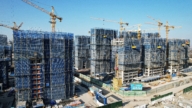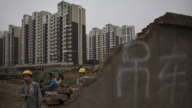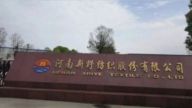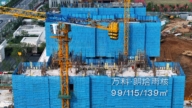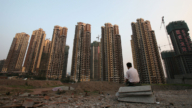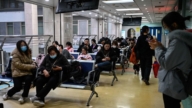【新唐人2012年8月25日訊】最近,大陸房市一掃持續低迷的慘澹狀態,高檔樓盤出現春寒乍暖,拉高均價的現象,專家認為,促成這個現象的原因,其中不乏民間沒有其他投資管道,和對大陸整體經濟缺乏信心等。對於未來房市走勢的觀察,各方專家學者看法不一。各方更關注的是,中共當局是否將出臺新的樓市調控政策。
根據中共國家統計局19號最新資料顯示,7月份內地70個大中城市當中,有50個城市的新建商品住宅環比價格上漲。今年元月,各個城市的環比價格還處於0上漲,但到了7月,環比價格上漲增長了一倍,這份資料令人關注。
經濟學家茅於軾分析,近期房價上漲的原因,一個是大陸百姓貧富差距過大,富人買好幾套房,而窮人一套也買不起的收入分配問題。另外,對於富人來說,沒有其他投資的管道。
經濟專家茅于軾:「能賺錢的項目都被國家佔了,老百姓只好買房﹔還有房價高是因為地價高,地價高的原因就是土地被政府壟斷了,沒有競爭地價當然就高﹔還有過去4萬億的投入,還有貨幣促進了房價高。這些原因現在都沒有變化,所以房價還是要高的。」
紐約市立大學經濟學教授陳志飛認為,另一個促使大陸房市目前上漲的原因是,大眾對中國的股市和其他投資項目失去信心。
紐約市立大學經濟學教授陳志飛:「今年以來中國的股市也是一再下跌,股民紛紛撤資﹔現在熱錢也往外走。在這種情況下,大眾沒有辦法,只好把錢投在房地產。」
據報導,7月下旬到8月上旬,中共國務院派出8個督查組,就中央樓市調控政策,對包括北京、天津、上海、重慶、廣東等16個省市進行檢查。初步結論是「市場不具備全面反彈的條件」、「不必再出臺調控新政策」。
陳志飛分析,目前大陸「製造業採購經理指數」PMI下降到48.7,偏離50的情況觀察,中國的製造業持續萎縮,相應而生的就業人口必然下降。他認為,雖然,目前不會再次發生像08年之後,大陸2千萬工人被迫還鄉的危機,但就業前景的黯淡,也促使樓市缺乏充分的需求,來造成實質性的上揚跡象。
陳志飛:「而且,大家現在也是比較小心,也就是說,中國投資環境已經很惡化了﹔所以,樓市不可能回覆到火爆的樣子﹔所以就不會再出臺新的政策。從它(國務院)的估計來看,它實際上是知道這是一個寬鬆政策造成的,並不是真正的需求的值的變化,或者是經濟活動有明顯的改善。」
另外,住房城鄉建設部有關負責人最近接受媒體採訪時介紹,全國重點城市可售新建商品住房面積仍處於歷史高位。這兩、三個月以來,由於大量新樓盤陸續上市,商業銀行連續下調購房貸款利率,並下調首購貸款利率。有個別城市出現為保增長,透過放鬆住房限購條件及發放購房補貼等方式來刺激買房。
由於大陸各地財政收入有60%繳給中共中央,各地財政是靠賣地維持支出。經濟評論家草庵居士認為,中央持續出臺打房政策,顯然造成地方的各項建設資金被截斷、財政開支短缺。
經濟評論家草庵居士:「所以這就造成一個很嚴重的問題,中央跟地方就有一個矛盾。儘管,中央很清楚知道,房地產泡沫走向於極端就會崩盤,造成很大經濟危機,它想辦法打壓。但是地方政府出於地方利益,就不得不想辦法去跟中央對抗,還要維持房地產(上揚)。其實我們看到的本質就是,地方跟中央政府在博奕。」
目前,中央當局持續1年多的房市調控,是否隨著各地房價上漲,未來進一步強化市場調控政策,也成為各方的關注焦點。
採訪編輯/梁欣 後製/王明宇
China’s Property Market Bounces
China’s high-end property market
has recently began to recover.
Experts have attributed this to lack of other investment channels,
and loss of public confidence in the Chinese economy.
Opinions differ on how China’s housing
market will go in the near future.
The spotlight is now focused on whether the Chinese
Communist Party (CCP) will implement new policies for regulation of the real estate market.
On August 19, latest official data shows a month-to-month
rise in new-home sales in China’s 50 major cities.
The figure was zero in January this year, while it has
doubled in July. The data has caused public concern.
Economist Mao Yushi analyzed
the reasons for a rise in house prices.
One is due to the widening of the rich-poor gap.
The rich could own multiple properties,
while the poor cannot afford even one.
The other is that the rich have no other investment channels.
Mao Yushi: “All lucrative projects
have been controlled by the regime.
The civilians have no other options but to invest in property.
High land prices have caused soaring house prices.
Land is monopolized by the government,
so its prices should certainly be high.
In the past, the government invested 4-Trillion
Yuan to stimulate the economy and the Chinese Monetary Policy has caused house price rises.
All these factors remained unchanged,
so the housing prices still stay high."
Chen Zhifei, professor of economics at City University,
New York, reveals another reason.
That is, the public has lost confidence in China’s
stock market, as well as other investment projects.
Chen Zhifei: “China has seen an ongoing
decline in the stock market this year.
Stock investors have beaten a path to withdraw their money.
Now, hot money is flowing away from the stock market.
In this case, the public has no other
choice, but to invest in property.”
Media have reported that between late July and early August,
the CCP State Council sent out eight groups to inspect
the application of Central policies on real estate regulation.
The inspections were conducted in 16 provinces and cities,
including Beijing, Tianjin, Shanghai, Chongqing, Guangdong.
The preliminary conclusion was that “in the market,
there do not exist conditions to allow it to fully bounce".
It also concluded that “it’s unnecessary
to introduce new regulatory policy.”
Chen Zhifei says that China’s PMI data has dropped to 48.7.
When this figure is lower than 50, it indicates
that manufacturing will continue to shrink.
This leads to more jobless population.
Chen forecasts that China will not see a crisis of massive
jobless migrant workers’ returning home like that in 2008.
However, the bleak unemployment
contributed to a lack of housing demand.
Chen Zhifei analyzed that in reality,
this led to soaring real estate prices.
Chen Zhifei: “Now the public is very cautious,
as China’s investment environment has worsened.
The property market will not bounce
back to what it was during it’s peak.
That’s why no new polices are expected to be seen.
The State Council’s move showed that it has actually
known the situation was caused by an easing policy.
The regime knows that it wasn’t a result of a real change
in demand, or of significant economic improvement."
The CCP Housing and Urban Construction Ministry
official commented during a recent media interview.
In China’s major cities, the amount of new
commercial housing for sale is still historically high.
The past few months have witnessed
a great supply of new commercial houses.
Banks have successively cut housing loan interest rates.
Banks have also lowered mortgage
interest rates for first-time home buyers.
In order to maintain economic growth to boost property
sales, some cities have loosened house purchasing restrictions and allocated housing subsidies.
The CCP central authorities collect
60% of local fiscal revenues.
Land sales are the main source of local finance.
Economic commentator Cao’an comments that
the central policies on restricting housing sales
have apparently cut the sources of funds for local
construction projects and fiscal revenue.
Cao’an: “This has created a very serious problem.
A conflict exists between Central authorities and the local’s.
The Central authorities clearly knows the property
bubble will collapse if it runs to the extreme,
and will lead to a great economic crisis.
It tries every means to cool the property market.
But local authorities, acting out of local interests, have
managed to confront Central policy and boost real estate.
In essence, local authorities are
contending with central authorities."
Facing nationwide rising house prices in China,
will the CCP regime further tighten its existing housing market regulation policy?
This question has become the focus of public attention.



